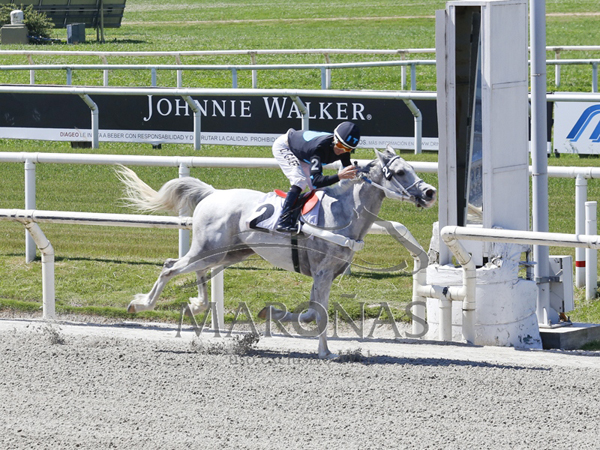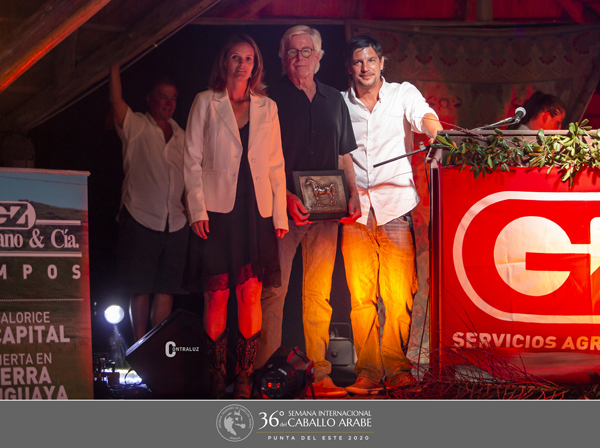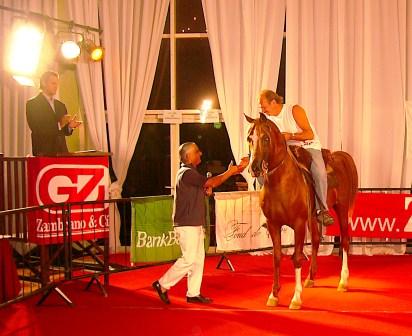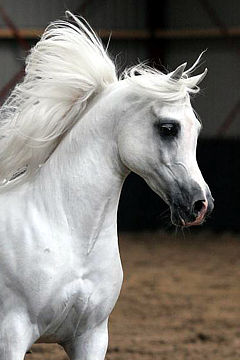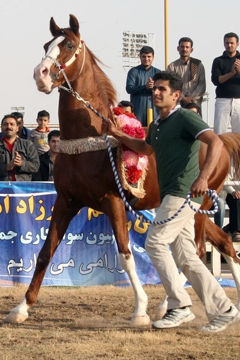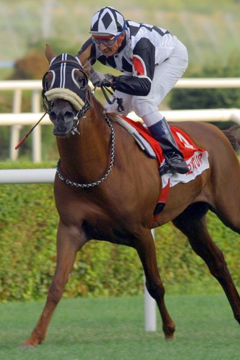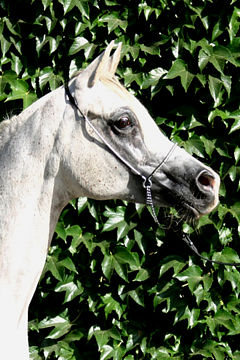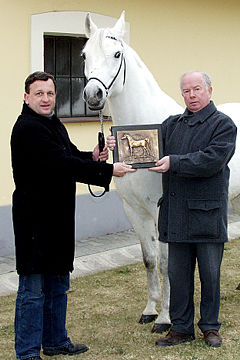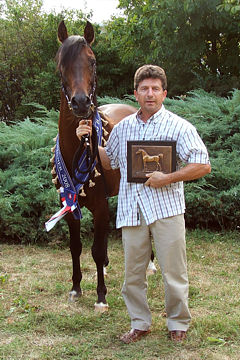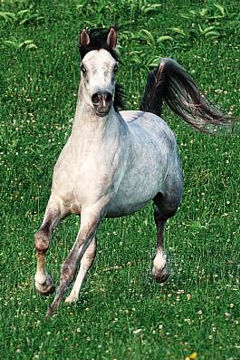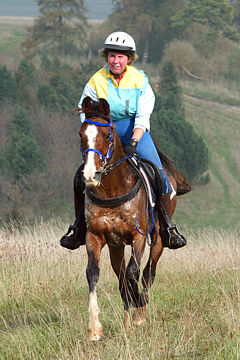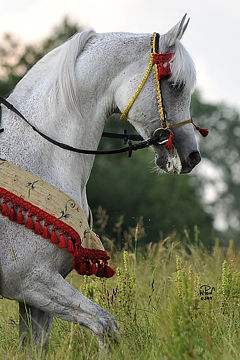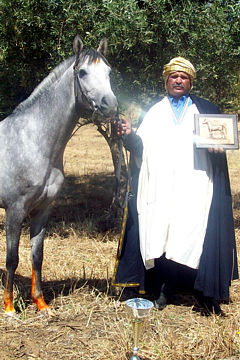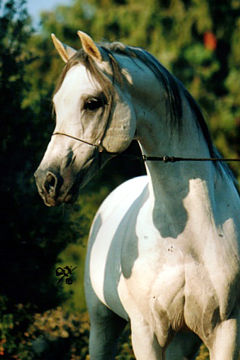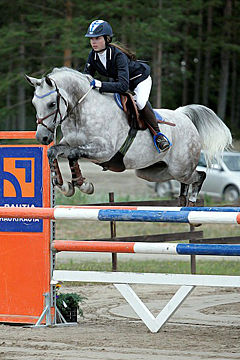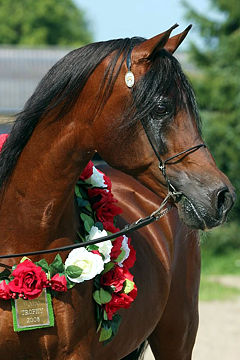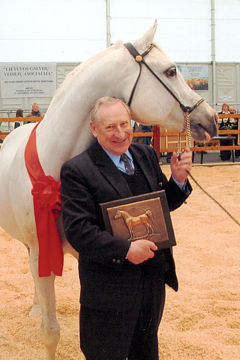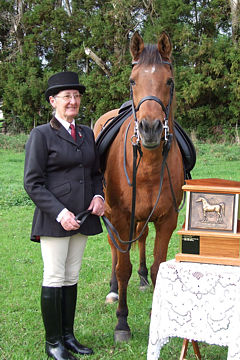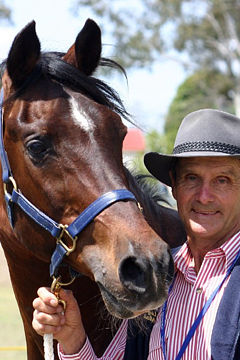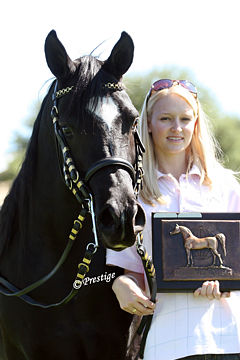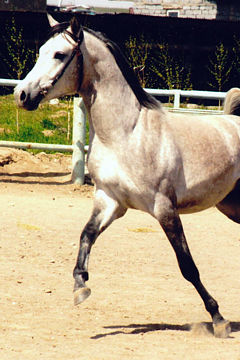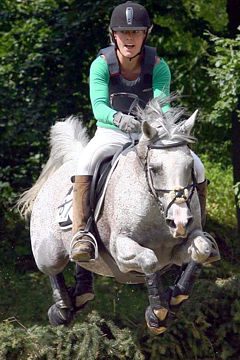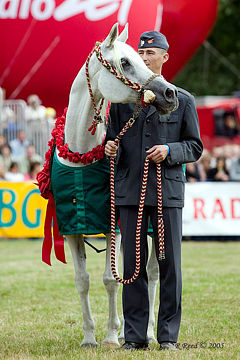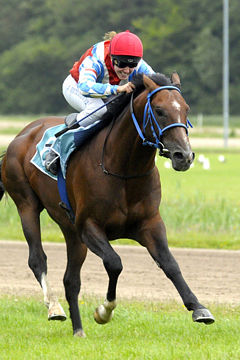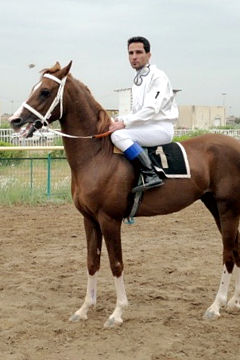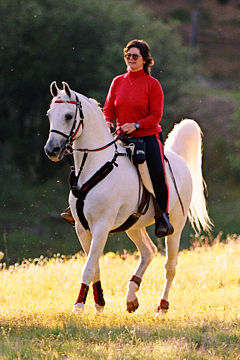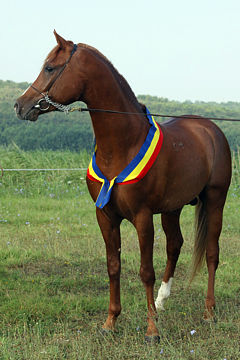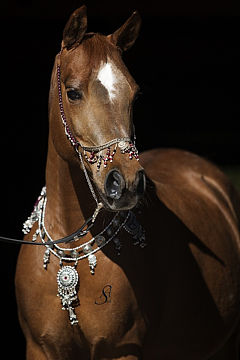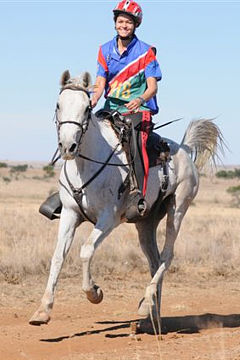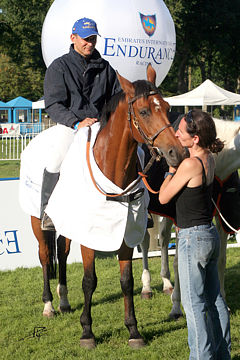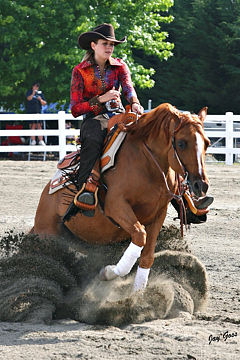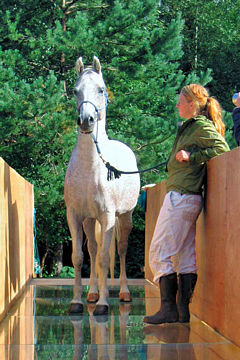![]()
Member Report from Uruguay
REPORT AT 2025 WAHO CONFERENCE:
Maria Vigorito, Uruguay: Good morning everyone, let me start by thanking His Highness Sheikh Mansour Bin Zayed Al Nahyan and His Highness Sheikh Zayed bin Hamad Al Nahyan and all of the Emirates Arabian Horse Society team, as well as the WAHO Committee, for enabling this opportunity for us all to be here in this incredible place to share a common passion. I am Maria Vigorito, General Secretary of the Uruguayan Arabian Horse Breeder’s Association and my co-delegate is Ms. Bernadette Campomar, former President of the Uruguayan Arabian Horse Breeder’s Association and current Member of the Board of directors and a breeder.
Uruguay is a small South American country located between Argentina and Brazil. The world usually knows us for 3 things: football, excellent beef and horses. Vast protected land, mild weather and the absence of the majority of OIE listed diseases makes it the perfect place for a horse farm and many people from overseas are now choosing this country as headquarters of their breeding division. Such is the case of our association President Mr Mohammad Hijazi, from Jordan and even our dear patron, Sheikh Mansour bin Zayed Al Nahyan.
The country always has a steady group of breeders that use their horses for working on the farm as our main industry is agriculture and cattle raising. However, since the introduction of endurance racing the breed expanded country wise and more people started to incorporate Arabian horses into their training and breeding programmes. Other activities such as barrel racing and halter classes are less popular.
The reason why endurance was a perfect fit for our horses in general, is that Uruguayans have been practicing “RAID” for over 100 years, which is a sport very similar to endurance so the transition of horses, trainers, and riders from one discipline to another was very small. Nowadays we have close to 70 endurance races per year. Thanks to the success of the Uruguayan horses in these competitions both locally and internationally we saw how the number of foals registrations doubled 10 years back, with breeders also registering half-Arabians. However, endurance horses can compete now in endurance with only their passports issued by the National Federation, so slowly the breeders found the registration process to be an unnecessary expense and numbers suffered a big drop. Nowadays we can see the consequence of this, because we know that the number of exported horses is actually greater than the certificates we issue. So, either these horses are not registered, or if they are then the new owners do not have the interest in them being introduced to the stud book. As the Uruguayan Association this concerns us because lineage and horse data are being lost and the breeders’ efforts are being completely disregarded.
We had some success with flat racing but it is very hard to find a sponsor that permits us to have good incentivising prizes.
Regarding embryo transfer, Uruguay has no limit as to the number of embryos that can be registered per mare and it has helped a lot in maintaining the numbers up. Our Uruguayan Stud Book is owned by the Asociación Rural del Uruguay who is under the jurisdiction of our Ministry of Agriculture. You can find an online version of it, and it is open to the public. All horses born in the past 10 years are DNA tested and microchipped but genetic testing is only done upon request.
Last but not least, I want to thank all of you members present or absent for keeping this remarkable breed alive and secure and looking always for ways to work together through WAHO as a global community. Thank you.
2019 REPORT:
The Arabian Horse Breeders Society of Uruguay have provided the following information. In 2017, 445 foals were registered. 41 horses were exported and 2 horses were imported. There were 80 show classes, 3 races and 15 endurance competitions. Liberty classes are also popular activity in Uruguay.
REPORT AT 2017 WAHO CONFERENCE:
Frederike Vreedenburgh, Uruguay: My name is Frederike Vreedenburgh, I am the delegate for the Arabian Horse Breeders Society of Uruguay. Mr. Vice-President, Your Royal Highness Princess Alia, members of the WAHO Executive Committee, Ladies and Gentlemen. It is with sincere gratitude to High Highness Sheikh Isa Bin Salman Bin Hamad Al Khalifa that we are once again assembled on this legendary island ‘Dilmun.’ The Royal Studs of Bahrain are world famous for keeping twenty desert strains asil, an achievement we all should applaud.
In recent years, Uruguay has become an export country for Arabian endurance horses as well as for a small amount of race horses. The horses have to be microchipped and registered by the Ministry of Agriculture, the registration fee includes an amount which goes towards Uruguay’s membership of WAHO. Our registry information is available online.
Apart from national meetings for all breeds, the Endurance Association of Uruguay also organises FEI competitions, including one sponsored by a Stables in Abu Dhabi. The condition and welfare of the horse is of upmost importance at these meetings. A third training for endurance is created at Punta del Este, so that the endurance centres are spread all over the country. The Uruguayan Arabian population is stable, 468 foals were registered last year, born on lush pastures all over the country. They are efficiently trained over hilly countryside and beaches. Auctions are held by most studs on a yearly basis, many foreigners come to buy their horses there. Our riders have completed successfully in many countries in South America, in the Emirates and in Europe. Recently they competed at the World Endurance competition in Slovakia. At the racecourse in Montevideo 3 races are held for pure Arabians sponsored by Shadwell stud. Since 3 years ago, the racecourse has had a jockey school, the education of the jockeys is taken very seriously for the welfare of the horse, as well as for the behaviour among human beings. Presently a project is on the way for an anti-doping laboratory.
The halter competitions are included in the Agriculture fairs for all breeds twice a year, as well as the National Arabian Horse Week at Punte del Este. This year a new halter class was introduced “Al Arabe Al Natural”. The three International judges admitted that they had never before judged such a class. No touch up is allowed and the horses have to be shown by their owners, it is the way how breeders select their horses for their breeding programme. Last December a contract was signed for 5 years with a new multinational convention centre, and we are looking forward to being able to organise a Pan-American Arabian Championship in the near future. Now we are still struggling to break down the various customs obstacles for bringing horses from the neighbouring countries together. Thank you very much.
REPORT AT 2011 WAHO CONFERENCE:
Mrs. Frederike Vreedenburgh, Uruguay: Mr. President, members of the WAHO Executive Committee, ladies and gentlemen. My name is Frederike Vreedenburgh, delegate for the Uruguayan Society of Arabian Horse Breeders. I would like to introduce my co-delegate, Mrs. Bernadette Campomar. In the first place, we express our deeply felt gratitude to our honourable hosts for bringing us together in such an inspiring surrounding of all Arabian horse breeders. As we can see, you have put a great effort into creating an attractive ambience for promoting our unique breed, bringing together as many important strains as there are in the present world, and showing us a variety of disciplines in a highly academic way.
In Uruguay we are experiencing a significant rise in interest in horses. You could say a “horse boom”. Due to an increase of economic power on the one hand, as well as a nostalgic feeling about our equine friends since early days. Even today in rural areas, children are often riding to school having no other transport available. All over the country our Arabian horse breeders organise regular and successful auctions. New breeders are getting involved in our five annual shows. Once a year a friendly show is organized at the Cavalry School close to the capital, Montevideo. At this show new owners and breeders are encouraged to show their horses. At the same time the national judges and apprentice judges get the opportunity to judge the halter classes at this popular show without foreign competition.
An independent body called the Association for Endurance in Uruguay organises approximately 20 endurance rides and 10 international competitions a year, all over the country. The majority ride on cross-bred or pure Arabians in these competitions, which are open for all breeds. In comparison, the ranking of Arabians is the highest. Competitors from the region as well as teams from Malaysia, Qatar and other individuals participate on borrowed horses. The endurance tests are a great forum for promoting the Uruguayan Arabians internationally.
Besides the publicity of competitions, auctions and riding tours through websites, magazines and other media, the online database is a great step forward for our Society. Since July of this year microchipping of newborn Arabians is mandatory as well as the DNA parentage test prior to registration. The Uruguayan Government realises the economic and cultural importance of the horse breeds. Recently a Seminar on The Horse was organised by the Chairman of the Lower Chamber of Parliament. All different Societies were invited to expose their activities and their targets to a numerous public with representatives of the various political parties. The importance of achieving an equine passport for our region was highlighted by the representative of the Arabian Horse Breeders Society. Our membership of WAHO, including a Committee member, was mentioned as well. The Minister of Foreign Affairs and of Tourism agreed to bring our request to the table of the next Regional Ministers’ Meeting. Thank you very much.
REPORT MADE AT 2009 WAHO CONFERENCE:
My name is Bernadette Campomar, I represent the Uruguayan Breeders Association. I would like to thank His Majesty Sultan Qaboos Bin Said, His Excellency Mr. Nasr Al Kindi, The Royal Court Affairs, and the Organizing Committee for hosting this Conference.
There were 406 foals born in 2007, and 458 in 2008 in Uruguay. There were 48 imports in 2007 and 66 in 2008, from Chile, Argentina, Brazil, USA and the UAE. 18 horses were exported between 2006 and 2008.
There were 4 Shows in 2007, and again 4 in 2008. Between 2007 and 2008 there were 20 endurance competitions.
The WAHO Trophy was awarded in 2006 and 2007 to the winners of riding competitions, and in 2008 to the National Endurance Championships winner. Our Association has 83 members. Thank you very much.
REPORT MADE AT 2007 WAHO CONFERENCE:
The Arabian Horse Breeders Association of Uruguay is especially proud of the history of the Arabian horse in our country. Up to now we have published 7 volumes of our stud books, up to the year 2004.
237 foals were registered in 2006, we had 270 registered broodmares and 108 breeding stallions. All foals are parent verified by DNA. 1 horse was exported to Brazil in 2006, and a total of 40 were imported from Brazil and Argentina. Artificial Insemination and Embryo transfer are allowed.
Endurance riding is very popular in Uruguay with at least 12 competitions each year. Only recently, our team won the Gold Medal at the World Championships for Young Riders in Argentina. Riders from the United Arab Emirates, riding Uruguayan horses, were placed second, assisted by Uruguayan technical and veterinarian personnel. Our Uruguayan team has also taken part in the world championships.
Showing is also popular, with 3 shows held each year. Last year our main show, at Punta Del Este, introduced the European-style triple judging system, which proved successful and will be used again in future. Recently the entries for halter classes have doubled, a lot of valuable stallions as well as mares having been imported from the USA, Brazil and Argentina. New breeders showed up at Punta Del Este and the stables attracted a large crowd. This year, two training courses will be organized during the National Show, one course for beginning judges, and one course for handlers. Both courses are open to non-members as well as members, for the same fee.
Unfortunately, the equitation or ridden classes is still considered a ‘side-dish’. But the Society does encourage these classes because this is the main part of the Arabian horse, to show himself under saddle. Competitions for skillfulness are held at every show, and a ranking has the same points system as the halter classes for the National Championships.
In 2007, Uruguay reports 406 foals registered, in the same year 3 horses were exported and 30 imported.

